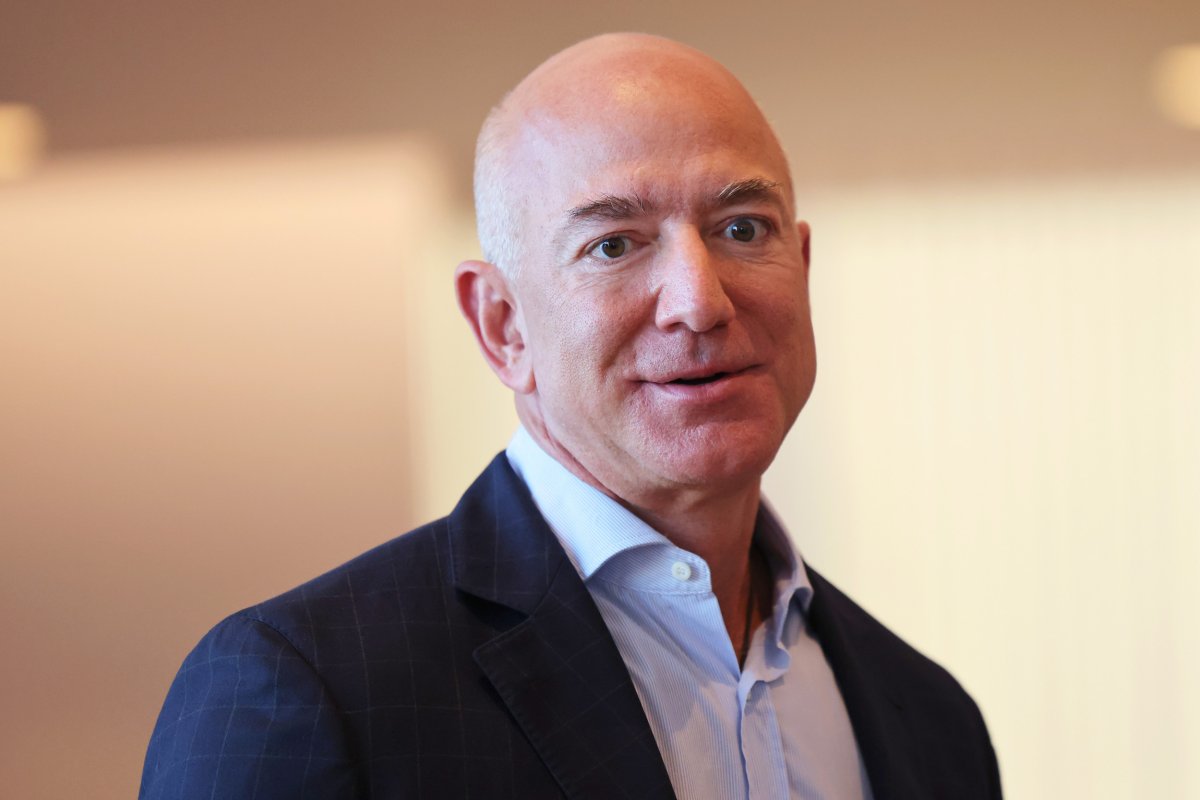It's an awful feeling, watching Senator Joe Manchin saddle congressional Democrats' efforts to confront climate change with fossil fuel giveaways, then watching Kyrsten Sinema hold Machin's watered-down legislation hostage until a provision narrowing a gaping tax code loophole benefitting private equity billionaires was stripped. We all know that time is running out: We're likely to see a Republican takeover in the House and maybe even the Senate in November, which will dash any hope of bolder action on climate for at least another two years, probably longer.
The clock ticks away. Even by the most optimistic estimate, the last sands will pass through the climate change mitigation hourglass in 2035. If the world hasn't cut greenhouse gas emissions to less than half of current levels by then, large parts of our Earth may become uninhabitable.
That year, 2035, also happens to be about when we might see the first trillionaire. Two years ago, USA Today reported on the prospect Amazon founder Jeff Bezos would reach that obscene level of wealth in 2026. We likely won't see the first trillionaire that soon, but it won't be too much longer after that. It took 38 years for America's largest stockpile of wealth to increase 100-fold, from Daniel Ludwig's $2 billion fortune in 1982 to Jeff Bezos' $200 billion fortune in 2020. That's an average annual rate of increase of nearly 13 percent, which would place the arrival of our first trillionaire somewhere around 2033.
If these trend lines continue, we're going to watch our last chance to save our climate slip away right as we see the birth of the trillionaire class. And it's no coincidence.
These two milestones are inextricably connected, both driven by the reality of American policymakers genuflecting to the demands of our billionaire class. The compulsion of billionaires to accumulate ever-larger fortunes drives them to crush any effort to increase the taxes they're required to pay. Starved of the revenue needed to fund meaningful climate mitigation programs, policymakers have continued to kick the proverbial can down the road.
In Davos Man, Peter S. Goodman documents the vice grip the billionaire class, which he refers to collectively as "Davos Man," has on policy making in America, and by extension, the industrialized world. Goodman explains:
"The norm over the last four decades was Davos Man using his money to purchase influence over the political sphere, crafting rules that allowed billionaires to keep more of their earnings. It was private equity kings like [Steven] Schwarzman stripping the health care system, and Amazon applying its market power to squash competitors while exploiting workers."

After his election, Joe Biden, the moderate alternative in the 2020 primaries to the enemies of the billionaire class like Bernie Sanders and Elizabeth Warren, seemed surprisingly willing to stray from the norm of politicians kowtowing to the billionaire class. In his original Build Back Better proposal, Biden called for trillions in additional spending, including ambitious public investment in renewable energy, energy efficiency, and other climate mitigation measures. A substantial portion of his proposed spending package would be funded by additional taxes on corporations and the billionaire class.
But after the dust settled on the budget negotiations in 2021, no new taxes on billionaires had been enacted and none of the tax subsidies to the fossil fuel industry had been eliminated. The climate change mitigation measures included in the so-called bipartisan infrastructure package paled in comparison to what Biden originally had proposed, and that paled in comparison to what was truly needed. The billionaire class had found the Democrats it needed, Kyrsten Sinema and Joe Manchin, to kill Biden's tax plan and water down the climate change mitigation provisions of his infrastructure plan.
Finally, after months of dithering, Manchin agreed to support the modified reconciliation bill that appears to be on its way to becoming law. The legislation includes modest climate spending paired with the expansion of federal oil and gas leases. Worse, still, a "side deal" between Manchin and Democratic leadership opens the door to more expansion of harmful fossil fuel infrastructure such as pipelines and export terminals, potentially undermining any emissions reduction gains from the reconciliation bill. In the face of the urgent need to force fossil fuel industries to pay the cost of greenhouse gas emissions, Democrats caved to moneyed interests and handed out additional subsidies instead.
Further, much more could have been done to address climate change had the bill included tax increases on the wealthy. But in the face of enormous growth of billionaire wealth and with the barreling of the planet toward climate disaster, billionaires were left untouched. Even a mild provision that would have narrowed marginally the morally indefensible loophole known as carried interest, which allows private equity billionaires to pay tax at a deeply discounted rate, was stripped from the legislation at the insistence of Kyrsten Sinema. Billionaires may not have complete influence over every politician, but they always have enough clout to avoid increases in their taxes and sometimes enough to have them decreased.
It's hardly a coincidence that America's first trillionaire will appear at about the same time the last hope of averting a climate disaster disappears. To borrow Goodman's term, Davos Man is driving both those results. The billionaire class' thirst for additional wealth has blocked us from enacting any of the changes needed to seriously tackle extreme wealth, whether through a wealth tax, a mark-to-market capital gains tax, or more ambitious inheritance taxes, and it's prevented us from scaling clean energy programs or forcing the fossil fuel industry to bear the cost of its emissions. For the ultra-rich, the show must go on, even if it makes a college education unaffordable, even if it makes health care unaffordable, and, yes, even if it makes the planet uninhabitable.
Bob Lord is an associate fellow at Institute for Policy Studies and a senior advisor on tax policy for Patriotic Millionaires.
Basav Sen is the climate policy director at Institute for Policy Studies.
The views expressed in this article are the writers' own.
Uncommon Knowledge
Newsweek is committed to challenging conventional wisdom and finding connections in the search for common ground.
Newsweek is committed to challenging conventional wisdom and finding connections in the search for common ground.
About the writer
To read how Newsweek uses AI as a newsroom tool, Click here.






